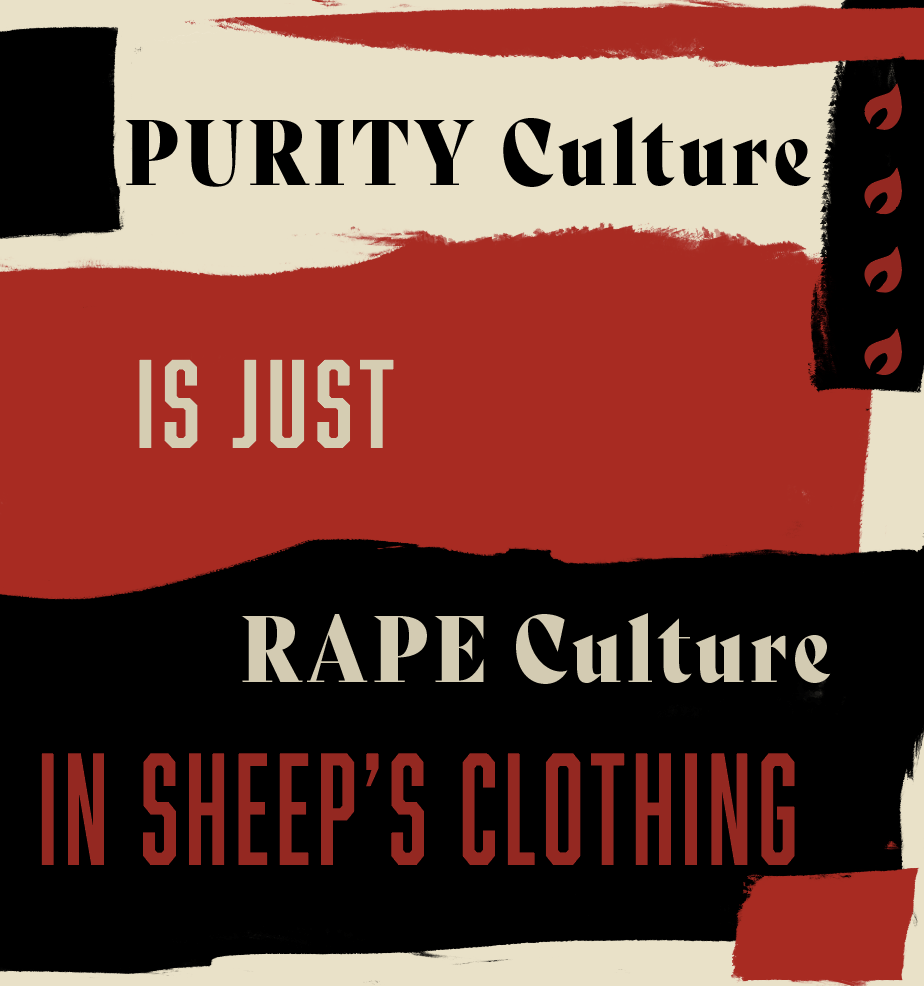Purity Culture Is Just Rape Culture In Sheep’s Clothing
During my freshman year of college, I had an experience that shaped my view of myself and my body for the next fifteen years… not in a good way.
I graduated from high school a year early—just a few months after I turned 17—so while my top choice for university was UCLA, my folks were nervous about sending such a young girl to a large state school. To them, it felt like throwing me to the wolves.
As a result, they had me choose between a couple of small Christian schools and I ended up at Biola University. But while my parents may have saved me from one pack of wolves, it turned out Biola had its own pack… they were just dressed up in sheep’s clothing so I never saw them coming.
A couple of months into my first semester, my all-women’s dorm hosted an event where a panel of male student leaders was invited to speak to us about various issues. The panel was made up of upperclassmen who were well-known and respected on campus—worship leaders, student body council members, TAs, athletes, etc.
Honestly, I don’t remember what topics they covered… there’s just one singular piece of their conversation that is seared into my memory. I can close my eyes and see it perfectly—where they were seated, where I was standing, the mug of peppermint tea I was holding, and all the other young women in the room. There were probably about 60 of us in attendance.
In my memory, one of the guys (who I won’t name because I happen to know he has since realized the error of his ways and done his best to make reparations), is talking about how he is affected when he sees a woman who is dressed “immodestly.”
He said something like: “What you have to understand is that when a girl is wearing something form-fitting or that shows a lot of skin, all we see is her body. For me, when a girl is dressed provocatively her face actually blurs and I can’t see her as a whole person anymore. She’s just a sexual object that I want. I feel terrible about that—it’s horrible for me. I don’t want to do that to girls! But it’s not something I can control, which is why it’s such a gift when the women on this campus dress modestly.”
It’s the “her face actually blurs and I can’t see her as a whole person anymore” bit that is stuck in my head like concrete. He said those specific words. To a room full of 17, 18, and 19-year-old girls.
What he was explicitly saying is that, for him, our humanity depended on what we were wearing. So it was our responsibility to make sure that he didn’t dehumanize us and perceive us as faceless sex objects. In this scenario, he was the victim. And we, with our female bodies, were the perpetrators.
What I’ve recently realized is that this dehumanization and victim-blaming is no different than the dehumanization and victim-blaming I experience from sexual harassment and rape culture.
From early high school through the end of college, I was sexually harassed and objectified on a very regular basis, including at every job I had until a few years ago. If and when I reported these things, I was always (without exception) told what I should do differently to prevent it from happening again. To my knowledge, none of the men I reported were ever told what they should do differently.
When I weigh them in my mind, the panel at my dorm and the sexual harassment I’ve experienced feel the same to me. In both cases, I was objectified, stripped of my full humanity, and told it was my fault.
Purity culture, it turns out, harms women in much the same way as rape culture.
Both demand that women make themselves less in order to prevent men from dehumanizing them… thereby dehumanizing them no matter what they do.
Both begin with the assumption that women are sexual objects for men and then demand women earn their humanity with what they wear, what they do, and how they carry themselves… though none of it is ever enough for them to retain their full humanity.
In that moment in my dormitory all those years ago, I remember thinking “Well, geez… I don’t want to be seen as a faceless sex object.” So for the next four years, I wore jeans that were several sizes too big (often men’s jeans) and baggy t-shirts. I played it off as casual surf style, but truthfully it was my effort to retain my humanity. To be seen as a person in the eyes of my male classmates.
Looking back, I wish I could tell 17-year-old me that her humanity is inalienable and undeniable. That it never was, and never will be, dependent on other people recognizing or validating it. That her sexuality is part of her humanity and her body is something to be celebrated, loved, and cared for rather than something to be ashamed or afraid of.
Women and girls deserve to be recognized for the wholeness of their humanity and if any person, culture, place, or group doesn’t recognize the inalienable wholeness of women’s humanity, the problem lies with them… not with us.
My humanity is not contingent on anything.

